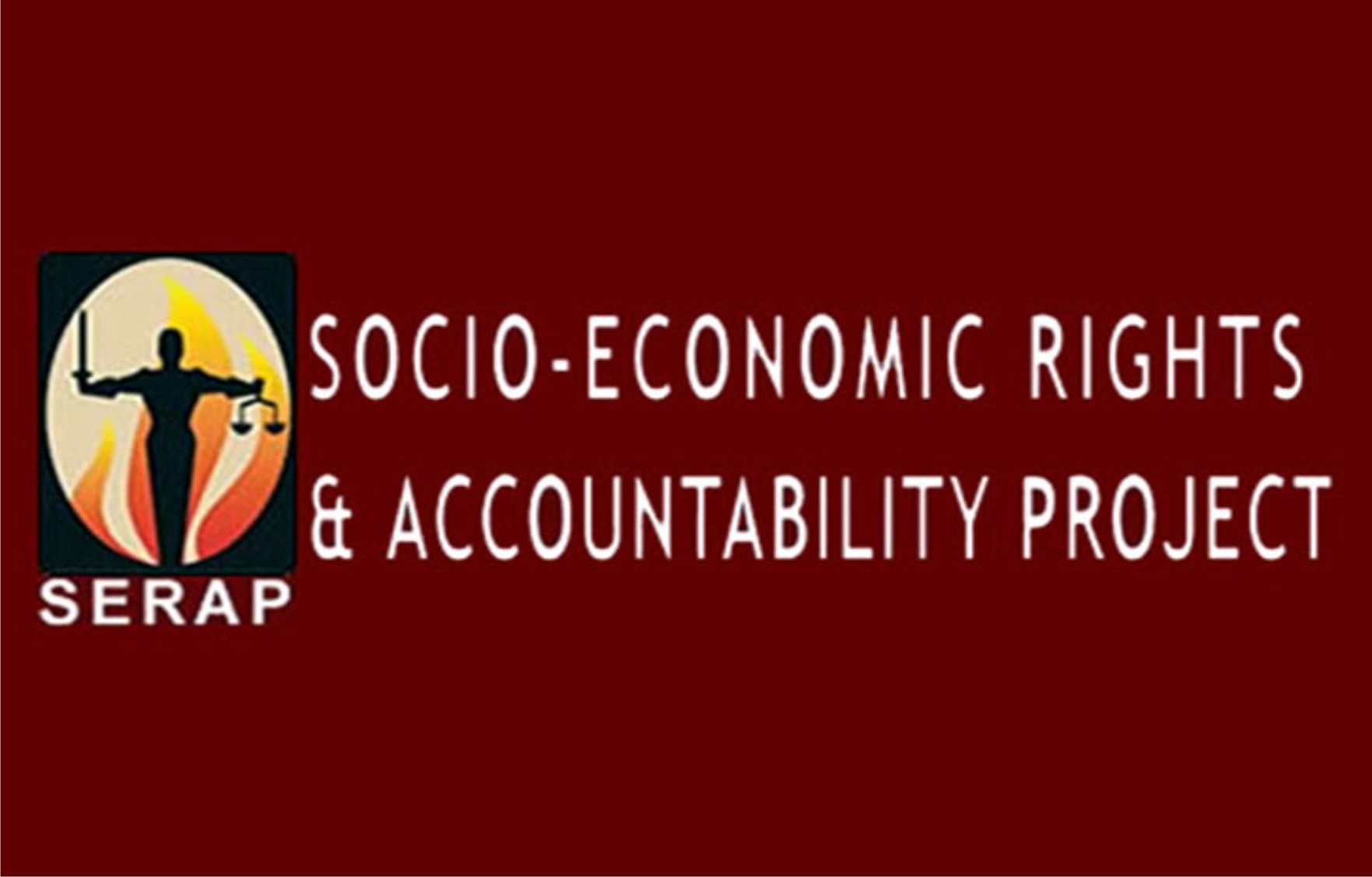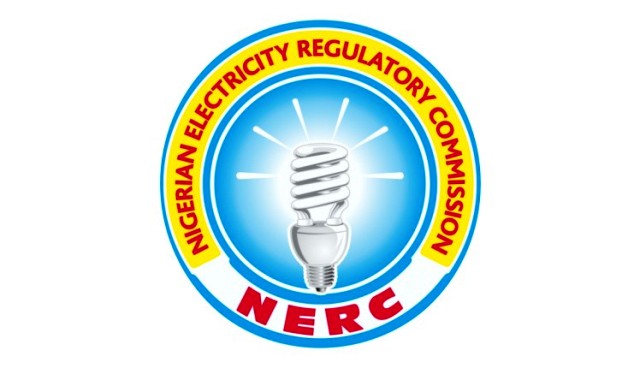News
Publish Assets Within Seven Days, SERAP Tells Buhari, VP, Govs

The Socio-Economic Rights and Accountability Project (SERAP) has given President Muhammadu Buhari, Vice-President, Professor Yemi Osinbajo, and 36 state governors seven days to declare public their assets.
SERAP gave the ultimatum in a statement issued yesterday signed by its Deputy Director, Kolawole Oluwadare. It said: “The Constitution of Nigeria 1999 (as amended), the FoI Act, and the African Charter on Human and Peoples’ Rights, which is part of our laws, read together, impose transparency obligations on all public officials to publicly disclose information concerning their asset declarations submitted to the CCB, and to clarify any updated review of such assets.”
The group noted that the non-public disclosure by public officials of their summary of assets undermines the integrity of Buhari’s administration.
SERAP added that the disclosure of assets prevents corruption and exposes unexplained wealth of officials.
The statement read: “President Muhammadu Buhari, Vice-President Professor Yemi Osinbajo, 36 state governors and their deputies should use their good offices to: provide information on summary of the assets, specifically property and income, contained in your asset declaration forms submitted to the Code of Conduct Bureau (CCB) since your assumption of office.
“SERAP is also asking them to clarify within 7 days of the receipt and/or publication of this letter, if you have had any reason to review and update the asset declarations submitted to the CCB, and to provide the summary of any such review; failing which we will take all appropriate legal action to compel you to comply with our request.
“The summary of assets to be disclosed include, where applicable, the following: savings and other liquid assets, all immovable property and shares and actions in any private and public companies; property purchased by way of tender from any public-law entities and information about businesses owned.
“The non-public disclosure by public officials of their summary of assets seriously undermines the effectiveness and integrity of the constitutional and statutory obligations to submit asset declarations, especially given that declarations are designed to curb grand corruption.
“The non-disclosure of assets also undermines the authority of the CCB and weakens the public trust in the asset declaration regimes.
“In the specific FoI request to President Buhari, SERAP noted his “public promise to make specific details of your assets public, and urge you to consider this FoI request as a unique opportunity to fulfil the promise made to the Nigerian people.
“The various FoI requests read in part: “Our FoI request does not clash with the rights to privacy and data protection. Both rights are not absolute and can be restricted provided there is a basis in law and a legitimate public interest justifies the restriction.
“Prevention of grand corruption and exposing unexplained wealth of officials are serious and legitimate public interests.
“We would also like you to clarify if you have encouraged members of your cabinet to also submit their asset declarations to the CCB and to make such declarations public. If so, we would like you to provide information on the details of those that have made submissions.
“We would also like you to clarify whether a declaration has been submitted as constitutionally and statutorily required, the date of any such submission, and if you have received any confirmation of the verification of your asset declaration by the CCB.
“The general public has a legitimate interest in ascertaining and scrutinising the veracity, exactitude and honesty of information contained in asset declarations submitted by public officials to the CCB. Without public disclosure of summary of assets, this would have no practical importance.
“Public disclosure of summary of assets submitted to the CCB would help uncover any irregularities and trigger formal verification of declarations by the CCB and other anti-corruption agencies.
“The information requested is the summary of assets submitted to the CCB pursuant to constitutional and statutory provisions. Providing the information will meet the constitutional objective of giving the public a reasonable picture of your detailed asset declaration lodged with the CCB as well as serve the purpose of providing a safeguard against abuse of the asset declaration process.
“This would in turn serve as an incentive to public officials to provide exact information when filing and submitting their asset declarations.
“The advantages that the general public would gain from being informed about the summary of assets declaration submitted to the CCB outweigh any inconvenience that may occur if the information is disclosed, pursuant to our FoI request.
“We believe that the Nigerian Constitution, the FoI Act and the African Charter grant the right to obtain information on the summary of assets of all public officials occupying a position of trust and discharging public functions.
“Any perceived claim of interference with the right to privacy are sufficiently foreseeable for the purposes of the legal requirements for asset declarations by public officials, given that public-disclosure of summary of assets would undoubtedly contribute to the legitimate aim of asset declaration regimes to prevent corruption, as it would ensure transparency regarding the details of those assets.
“SERAP notes that a decision to run for public office is an occasion when people knowingly or intentionally involve themselves in activities which are or may be recorded or reported in a public manner.
“It is in the nature of the democratic political process that Nigerians may legitimately be interested in the conduct of public officials. The issue of the asset declarations of persons holding public offices is one of legitimate public interest and concern, and serves the purpose of ensuring transparency in the exercise of public functions.
News
PDP Kicks As APC Wins FCT Council Polls

The Peoples Democratic Party (PDP) has inaugurated a special legal team to handle election petitions arising from last Saturday’s Area Council elections in the Federal Capital Territory.
This comes as the All Progressives Congress (APC) won in Abaji, Kwali, AMAC, and Bwari Area Councils, while the PDP secured victory only in Gwagwalada.
The Tide reports that the council elections were held on Saturday, February 21, 2026, across all six FCT area councils, including Abaji, AMAC, Bwari, Gwagwalada, Kuje, and Kwali.
Results announced so far by the Independent National Electoral Commission (INEC) show that the All Progressives Congress (APC) won in Abaji, Kwali, AMAC, and Bwari Area Councils, while the PDP secured victory only in Gwagwalada.
In a statement issued yesterday by PDP’s National Publicity Secretary, Ini Ememobong, the party congratulated its candidates, who emerged winners in the chairmanship and councilor elections.
The opposition party acknowledged the victories, noting that the number of wins was lower than expected but significant given the alleged irregularities during the polls.
“We specifically congratulate the Chairman-elect of Gwagwalada Area Council, Mohammed Kasim, and the councillors who have been declared successful by the Independent National Electoral Commission (INEC).
“This victory, though less in number than we anticipated, is particularly gladdening because it is against the background of unprecedented intimidation, high-powered money politics, and brazen executive brigandage,” the statement read.
Ememobong claimed that there are reports and video evidence indicating voter intimidation and unlawful conduct that influenced the outcome of the elections.
“Reports and video evidence abound where armed security personnel were used to cart away result sheets in polling units, intimidate voters, and unduly influence the outcome of the elections.”
To address complaints and litigations arising from the polls, he said the party has set up a legal team headed by its National Legal Adviser, Shafi Bara’u, Esq.
The statement urged candidates with legitimate grievances to contact the Legal Adviser promptly, as delays could jeopardise their chances in election petition cases.
“The incredible voter apathy in these polls is a direct response to the anti-people Electoral Act 2026, where the people have completely lost faith in the electoral outcomes from elections conducted under this Act.
“These Local Council polls may just be a foreshadowing of the forthcoming general elections in 2027 if changes are not urgently made,” the statement added.
The PDP called on the National Assembly and the President to take corrective action to safeguard the integrity of Nigeria’s democracy.
News
S’Court Gets New Justice As CJN Swears In Oyewole, Wednesday

The Chief Justice of Nigeria, Kudirat Kekere-Ekun, will on Wednesday swear in Justice Joseph Oyewole as a Justice of the Supreme Court of Nigeria.
The ceremony is scheduled to be held at 2pm at Courtroom Two of the Supreme Court complex in Abuja.
The court urged guests to adhere strictly to the court’s protocols and security measures.
This was contained in a statement issued yesterday by the Supreme Court’s Director of Information and Public Relations, Dr Festus Akande.
The court described Oyewole’s appointment as a step towards reinforcing the capacity of the apex court to deliver fair and timely judgments.
Recall that Oyewole was, until his elevation, a Justice of the Court of Appeal and Presiding Justice of the Enugu Division, and joins the apex court bench as part of ongoing efforts to strengthen the judiciary.
The National Judicial Council recommended Oyewole for the position alongside 35 others for various judicial offices, following its 110th meeting held on January 13, 2026, and presided over by Justice Kekere-Ekun.
The statement partly read, “The Chief Justice of Nigeria, Hon. Justice Kudirat Kekere-Ekun, GCON, will on Wednesday, 25th February, 2026, preside over the swearing-in ceremony of the newly appointed Justice of the Supreme Court, Hon. Justice Joseph Olubunmi Kayode Oyewole, JCA.”
According to the statement, Oyewole served with distinction at the Court of Appeal and as Presiding Justice of the Enugu Division prior to his elevation.
“His appointment underscores the commitment of the Nigerian judiciary to upholding the rule of law, ensuring justice, and strengthening the bench with experienced and dedicated jurists. He brings a wealth of legal expertise and integrity to the apex court to further enhance its capacity to deliver fair and timely judgments,” the statement added.
The apex court further described the swearing-in as “another significant step in rejuvenating the judiciary and ensuring the continued delivery of justice in line with the highest standards of integrity, competence, and impartiality.”
The Supreme Court reiterated its commitment to justice, fairness and judicial independence for the benefit of Nigerians.
News
Fubara Mourns Senator Mpigi

Rivers State Governor, Sir Siminalayi Fubara, has expressed deep shock and sadness over the sudden passage of Senator Barinada Mpigi, the Senator representing South East Senatorial District of Rivers State.
In a tribute to mourn the deceased, Governor Fubara described Mpigi as a brother, a consummate politician and one of the leading lights in Rivers State.
He said that Mpigi died at a critical time when his services were still needed by the people of Rivers State and prayed God Almighty to grant him eternal rest.
The governor commiserated with his immediate family, the Rivers South East Senatorial District and the Senate at large, asking them to take solace in the fact that the deceased lived a good life and impacted positively on the people.
Senator Mpigi died at the age of 64. Until his death, he was the Chairman of the Senate Committee on Works.
-
Maritime2 days ago
Nigeria To Pilot Regional Fishing Vessels Register In Gulf Of Guinea —Oyetola
-
Maritime2 days ago
Customs Declares War Against Narcotics Baron At Idiroko Border
-

 Sports2 days ago
Sports2 days agoGombe-Gara Rejects Chelle $130,000 monthly salary
-
Maritime2 days ago
NIMASA,NAF Boost Unmanned Aerial Surveillance For Maritime Security
-
Maritime2 days ago
NIWA Collaborates ICPC TO Strengthen Integrity, Revenue
-

 Sports2 days ago
Sports2 days agoTEAM RIVERS SET TO WIN 4×400 ” MORROW” …Wins Triple jump Silver
-

 Sports2 days ago
Sports2 days agoNPFL Drops To 91st In Global League Rankings
-

 Sports2 days ago
Sports2 days agoNSC eyes international hosting rights






